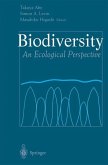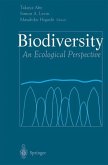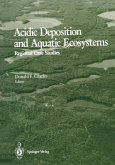An attractive, promising, and frustrating feature of ecology is its complex ity, both conceptual and observational. Increasing acknowledgment of the importance of scale testifies to the shifting focus in large areas of ecology. In the rush to explore problems of scale, another general aspect of ecolog ical systems has been given less attention. This aspect, equally important, is heterogeneity. Its importance lies in the ubiquity of heterogeneity as a feature of ecological systems and in the number of questions it raises questions to which answers are not readily available. What is heterogeneity? Does it differ from complexity? What dimensions need be considered to evaluate heterogeneity ade quately? Can heterogeneity be measured at various scales? Is heterogeneity apart of organization of ecological systems? How does it change in time and space? What are the causes of heterogeneity and causes of its change? This volume attempts to answer these questions. It is devoted to iden tification of the meaning, range of applications, problems, and methodol ogy associated with the study of heterogeneity. The coverage is thus broad and rich, and the contributing authors have been encouraged to range widely in discussions and reflections. vi Preface The chapters are grouped into themes. The first group focuses on the conceptual foundations (Chapters 1-5). These papers exarnine the meaning of the term, historical developments, and relations to scale. The second theme is modeling population and interspecific interactions in hetero geneous environments (Chapters 6 and 7).
Hinweis: Dieser Artikel kann nur an eine deutsche Lieferadresse ausgeliefert werden.
Hinweis: Dieser Artikel kann nur an eine deutsche Lieferadresse ausgeliefert werden.








